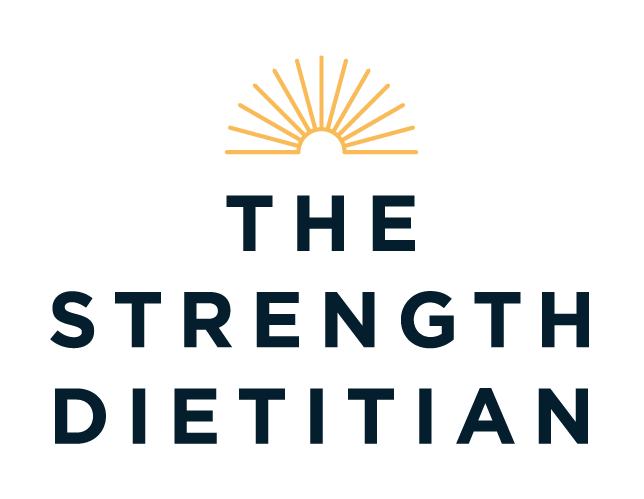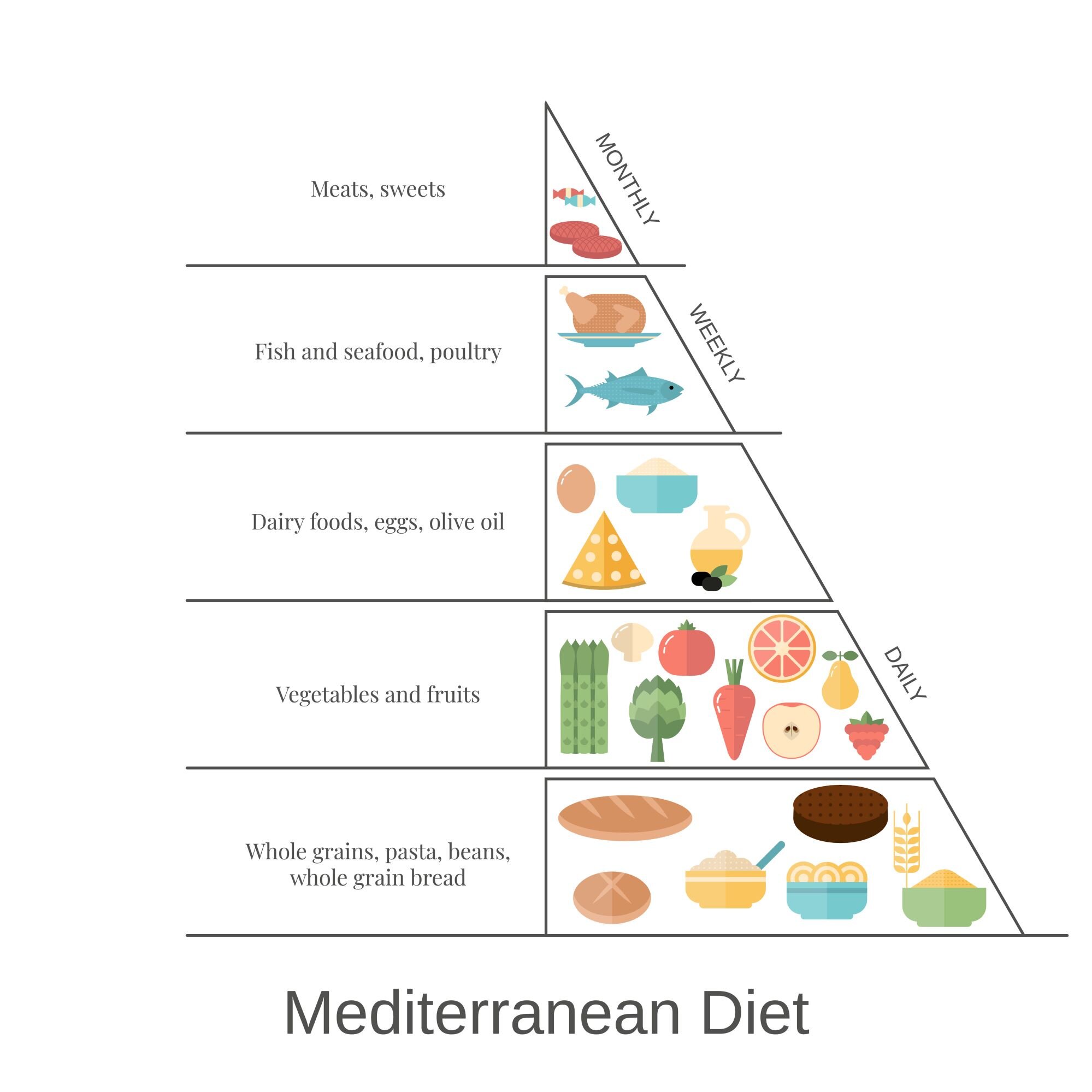Polycystic Ovary Syndrome (PCOS) Diet: Friendly Foods & FAQs
All your questions about PCOS answered including
What is the best diet for PCOS?
What foods make PCOS worse?
Should you snack with PCOS?
How to make PCOS friendly chips?
Can gluten and dairy affect PCOS symptoms?
Let’s start with what you can eat to help manage and improve PCOS symptoms.
What is the best diet for Polycystic Ovarian Syndrome (PCOS)?
The best diet for PCOS is one that you are able to SUSTAIN long-term in order to manage PCOS symptoms.
While there are effective treatment options to manage PCOS symptoms, it is important to remember that there are no current cures and it is a lifelong condition.
Therefore,
1) Go higher protein
2) Make smart carbohydrates choices
3) Heart Healthy Omega 3s
4) Including more fibrous vegetables, legumes and beans
5) Try the Mediterranean Diet
IF you want specific advice on PCOS and weight loss, check out this article here.
The Mediterranean Diet focuses on wholegrains, fruit, vegetables with dairy, poultry, eggs, seafood and fish occasionally. Meats and sweets are eaten infrequntly and in moderation.
What foods make PCOS worse? What should you not eat with PCOS?
1) Refined carbohydrates e.g. chips, cakes, pastries, biscuits, soft drinks, desserts
2) Saturated fats e.g. red meat, fried foods, full fat dairy
Should you snack with PCOS?
This depends on you AND what you snack on!
Regular healthy snacks can help prevent you from overeating later in the day. It can also be a greater way to sneak in some extra fibre and healthy fats.
Constant grazing and snacking throughout the day instead of having proper meals, however, can lead to overeating and poor nutritional quality
It is okay to snack with PCOS but I would limit it to 1-2 healthy snacks per day.
Can you eat sweets with PCOS?
While there is no need to go completely sugar-free if you have PCOS, sweets should be eaten in moderation (maximum 1-2x per week). Unfortunately, refined sugars are one of the worst foods for PCOS. This is because refined carbohydrates can elevate blood sugar levels and worsen insulin resistance and PCOS symptoms.
How much sugar is too much sugar?
The World Health Organisation (WHO) – max 5-10 teaspoons of free sugars
American heart Association: maximum 100 calories (6 teaspoons) for women and 150 calories (9 teaspoons) for men per day from added sugars.
Added sugars can be tricky to identify as they have many different names including:
- sucrose
- glucose
- high-fructose corn syrup
- honey – While honey is touted as “natural sweetener”, it is still considered an added sugar.
- raw sugar
- agave nectar
- brown sugar
- cane crystals
- cane sugar
- evaporated cane juice
- corn sweetener
- corn syrup
- crystalline fructose
- dextrose
- fructose
- fruit juice concentrates – this may seem like a healthier sugar but it simply sugar derived from fruit juice with all the water extracted
- invert sugar
- malt sugar
- malt syrup
- maltose
- maple syrup
- molasses
Note: this only refers to free or added sugars. Fruit and carbohydrate containing foods are not considered added sugars.
While brown sugar, honey or agave syrup are touted as more “natural sugars”, regardless of their source, they are still added sugars and harmful in excess.
What are PCOS – friendly desserts?
- Gelato or sorbet
- Protein balls
- Choc avo mousse
- Chocolate chia pudding
- Yogurt and fruit parfait
- Chocolate mousse
*Note: You can use sugar substitutes to reduce refined carbohydrates in recipes e.g. Splenda or Xylitol
How to make pcos friendly chips?
In general, chips are high in saturated fat and refined carbohydrates but there are still PCOS-friendly chips at the supermarket or you can make your own.
PCOS-friendly store-bought chips include:
o Pea Harvest Snacks
o Macro Lentil Bites Beetroot
o Quest Protein Chips
PCOS-friendly homemade chips include:
- Kale chips – kale, olive oil, salt
- homemade, low carb tortilla- almond flour and mozerella cheese
OR use a low carb wrap with cheese of choice
Does cutting out dairy help PCOS?
Currently, there is not enough evidence to recommend avoiding dairy completely in PCOS however many individuals still choose to avoid dairy. Dairy products (milk, cheese and yoghurt) appear to have no negative impacts on fertility and ovulation. [1]
Consumption of dairy products is associated with a lower risk of developing Type 2 Diabetes, which is especially important for women with PCOS. This is because PCOS is a risk factor for developing pre-diabetes, Type 2 Diabetes and gestational diabetes. In fact, individuals with PCOS have a 7x higher risk of developing Type 2 Diabetes than individuals without PCOS.[2]
Dairy provides protein, calcium, vitamin D, vitamin B12 and phosphorous. If avoiding dairy, it’s important to find alternative sources of these nutrients. For example, including calcium-fortified milks or tofu made with calcium carbonate.
Does cutting out gluten help PCOS?
There is no evidence suggesting that gluten negatively impacts PCOS. However, refined carbohydrates and sugars that are often present in gluten-containing foods (cakes, biscuits, bread, pastries) can worsen PCOS symptoms and insulin resistance. It is not the gluten (which is protein found in wheat) that causes this. Therefore, it is not necessary to go completely gluten free (unless you are coeliac) to improve PCOS.
If energy-dense gluten-containing foods are eliminated, it can reduce overall carbohydrate intake and sugar intake and aid weight loss. However, simply replacing energy dense, nutrient-poor foods (e.g. cookies) with gluten-free versions often result in weight gain. Gluten-free foods often add in fat and sugars in order to make up for the gluten (protein). This results in a product that is higher in calories, fat, sugar and lower in protein.
In addition, wholegrains provide many benefits and nutrients including a rich source of B-vitamins, iron, thiamine, magnesium and zinc. They also help keep blood sugar levels stable which is important for individual with PCOS and insulin resistance.
Instead of removing gluten completely, focus on replacing foods high in added sugar, with whole foods that are naturally low in sugar.
What are PCOS friendly foods?
PCOS- friendly foods are ones that are nutrient rich, high in protein and have a low glyacemic index (GI). You might be surprised to find out that this is a very long list of foods andthere is no need to restrict.
Don’t’ believe me? Let me give you some examples of some delicious PCOS-friendly main meals!
- Fish Tacos (or vegetarian)
- Spaghetti Bolognese – using legume or wholegrain pasta + lots of legumes and beans
- Chickpea and pumpkin curry
- Chicken burgers on a wholegrain bun
- Buckwheat pancakes
- Turkey and cheese wraps
- Avocado and poached eggs on rye bread
Are corn flakes good for PCOS?
Corn flakes can be included within a healthy PCOS diet. I wouldn’t recommend making them as a staple breakfast as they are low in protein and often are high in added sugars.
References
[1] Janiszewska J, Ostrowska J, Szostak-Węgierek D. Milk and Dairy Products and Their Impact on Carbohydrate Metabolism and Fertility—A Potential Role in the Diet of Women with Polycystic Ovary Syndrome. Nutrients. 2020; 12(11):3491. https://doi.org/10.3390/nu12113491
[2] Guo, J., Givens, D. I., Astrup, A., Bakker, S., Goossens, G. H., Kratz, M., Marette, A., Pijl, H., & Soedamah-Muthu, S. S. (2019). The Impact of Dairy Products in the Development of Type 2 Diabetes: Where Does the Evidence Stand in 2019?. Advances in nutrition (Bethesda, Md.), 10(6), 1066–1075. https://doi.org/10.1093/advances/nmz050






